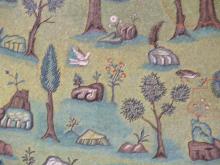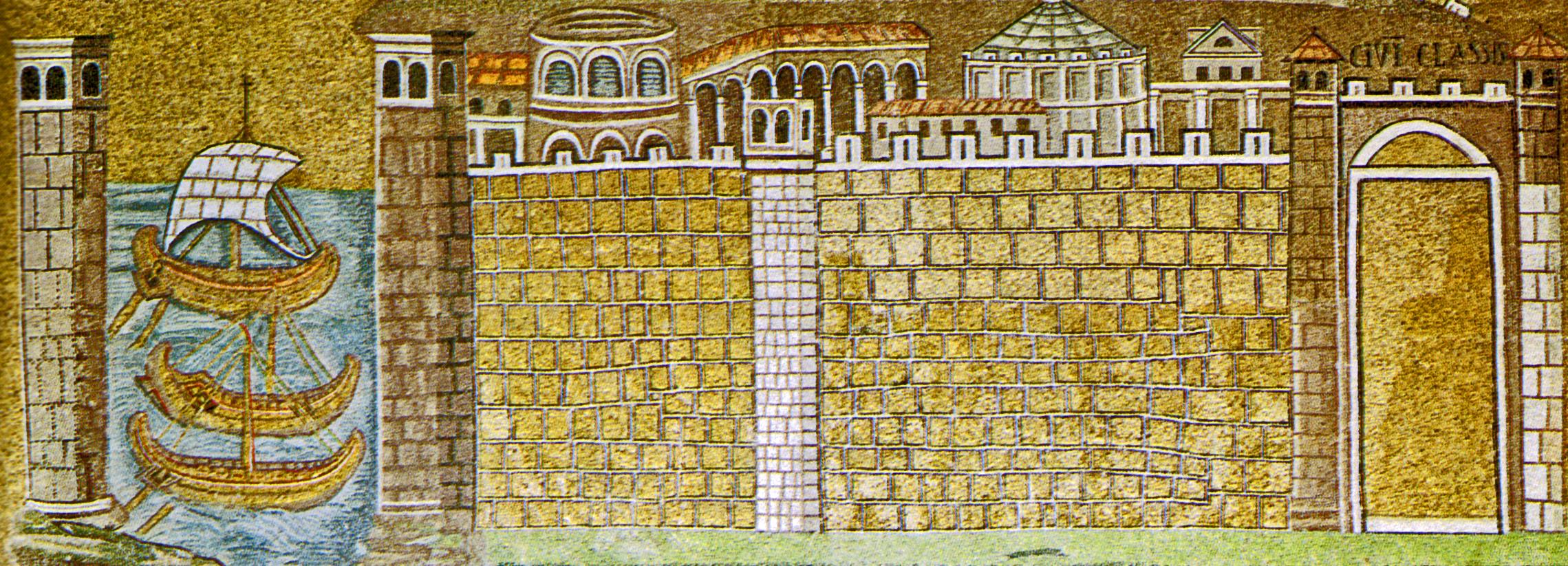Environment and Empire at the
Transition from Antiquity to the Middle Ages
A Workshop
Saturday, 14th April 2012
Alumni House, Amherst College
The sixth century was an era of great achievements and great challenges for the Roman Empire. Imperial borders initially expanded as lost territories were reconquered and an extensive “civilizing” project was undertaken. Under Justinian, the monumental Corpus Juris Civilis was compiled, and new levels of law and order introduced. Some of the most impressive public works of all time saw the light of day. City and country life seemed extraordinarily prosperous, with the export of grain and olive oil on an industrial scale from Egypt and Syria feeding populations throughout the Mediterranean basin. However, invasions and revolts combined with natural disasters to cause dramatic upheavals. The “eternal peace” with Persia collapsed. A mysterious dust cloud is thought to have blocked out the sun in 536 and may have led to climate change that caused crops to fail and famine to spread; bubonic plague made its appearance in 541 and may have wiped out as much as half the population. By the second quarter of the seventh century, Christianity, which had earlier become the official religion of the state, found itself increasingly competing with a new monotheistic religion, Islam.
The workshop will examine the role played by natural and man-made environments in shaping the reality and the ideal of empire in this period. As we become increasingly preoccupied with trying to understand the environmental consequences of imperialism to contemporary global society, the story of the world “after Rome” presents us with a set of interesting questions with which to navigate modernity.

Speakers
- Fred Cheyette, Amherst College
- Archie Dunn, University of Birmingham
- Geoffrey Greatrex, University of Ottawa
- Lester Little, Smith College
- Michael Maas, Rice University
- Richard Payne, Mt. Holyoke College
- Peter Sarris, Cambridge University
- Robert Schwartz, Mt. Holyoke College
Program
For the draft program, click Program.
The workshop includes a round table, in preparation for which the following reading is suggested: Peregrine Horden, “Mediterranean Plague in the Age of Justinian,” in The Cambridge Companion to the Age of Justinian, ed. Michael Maas (Cambridge, 2005), pp. 134-60. Contact the organizers if you do not have access to this text.
Registration
The event is free of charge, but registration is essential. For the registration form, click Registration.
Location
Alumni House is located on the edge of the Amherst College campus, within easy walking distance of downtown Amherst. Several possible accommodations are also within walking distance or a short drive away.
Organizers
Ted Melillo, Amherst College
Teresa Shawcross, Amherst and Mt. Holyoke Colleges
Sponsored by the Lamont Peace Fund of Amherst College, the History Department of Amherst College, the History Department of UMASS, the History Department of Mt Holyoke College, the History Department of Smith College, the Classics Department of Amherst College, and Five Colleges, Inc.
